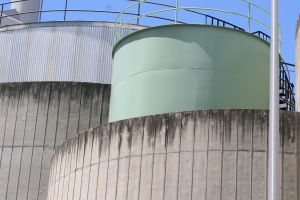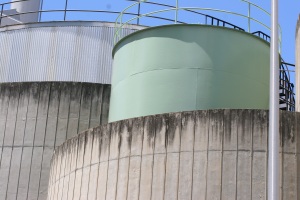7 Signs of Diesel Fuel Contamination by Microbes, Fungus, and Bacteria
Maintaining today's stored backup fuels is a bigger job than it used to be. One major reason is that fuels themselves have changed. Ultra-low sulfur...

What kind of things make fuels like biodiesel or diesel or ethanol go bad? What’s the best way to protect the investment made in these fuels?
 Fuel is expensive these days. And they’re not getting any cheaper any time soon. We fear that the days of $1.00 per gallon gasoline or diesel are gone and are never to return. This means fuels are more like an investment than at any time in the past.
Fuel is expensive these days. And they’re not getting any cheaper any time soon. We fear that the days of $1.00 per gallon gasoline or diesel are gone and are never to return. This means fuels are more like an investment than at any time in the past.
Whether ethanol-blended gasoline, regular diesel, or even biodiesel, the best way to keep those fuels fresh when storing fuel long term is to minimize their contact with five things – air, light, heat, water, and certain kinds of metals.
Air provides oxygen which is essential to oxidation reactions – chemical reactions in the fuel that break fuel molecules apart and bring about cascades of chain reactions that result in fuel quality breaking apart and degrading. Light and heat play into the chemical principles that the addition of energy into a system (light energy and thermal energy) provides some types of chemical reactions that they need to get going and continue.
In this case, these chemical reactions are bad for long-term fuel quality. Water molecules provide build blocks for the start of both oxidation and hydrolysis reactions, both of which degrade fuel quality over time.
And certain kinds of metals, like copper and bronze, catalyze these reactions (make it easier for them to happen), especially in biodiesel fuels. Water buildup can also lead to microbial growth – a big problem that destroys fuel quality even faster than any of these other causes.
It’s easiest to weed out light and metallic contact in the normal course of fuel distribution and storage. Contact with air can be minimized as well. Diesel fuel stored in common underground tanks tends not to have a problem with heat – above-ground storage tanks have more of a problem with this. It’s easier to get equipment without copper and bronze and other problematic metals to eliminate that cause.
This leaves water build-up - the hardest element to control. Most storage tanks for any kind of fuel are vented to the outside air, and water buildup through condensation is inevitable and impossible to stop. Fuel treatments to control water, like Dee-Zol, Marine MXO, and DFS Plus are very effective in minimizing this problem. Fuel stabilizers like Dee-Zol Life (for diesel fuel) and Bio Dee-Zol help to protect stored fuels against all of these kinds of reactions by blocking them from starting. This is useful because, in chain reactions, the later reactions build upon the beginning reactions; indeed, if the beginning reactions are prevented from happening, the whole chain of events can be stopped. And that’s basically what fuel stability protectors like Bio Dee-Zol and Dee-Zol Life do.
Another reason to control water build-up is the potential for microbes to infect and ruin fuel quality. Microbes like bacteria and fungi need water to grow and survive. Removing the water as it collects keep these harmful microbes (which ruin fuel quality) from growing and thriving. if a stored fuel tank does develop a microbe problem, a fuel biocide like Bellicide is needed to kill the infestation, while regular treatment with a product like Bellicide can be very helpful in ensuring they don't come back. This is especially useful in high humidity climates like here in Florida where water in stored fuel is an ongoing problem.
Maintaining today's stored backup fuels is a bigger job than it used to be. One major reason is that fuels themselves have changed. Ultra-low sulfur...
Anyone who works with diesel fuel, stored or otherwise, knows that water comes with the fuel territory. Water in fuel can cause problems all year...
As a service to our customers, dealers, and friends, Bell Performance hosts quarterly webinars on fuel topics of interest to them and their...